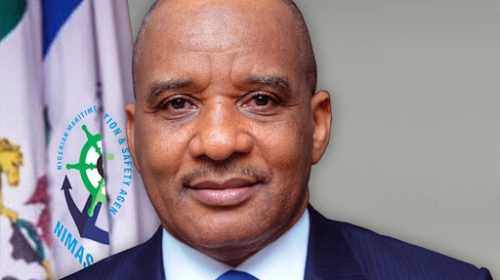Stakeholder Calls For Advocacy Group In Realizing Maritime Sector Potentials

By Ngozi Onyeakusi
Nigerians has been charged to establish a maritime advocacy group saddled with the responsibility of working to convince government on the importance of implementing policies that can effectively explore the huge potentials for growth embedded in the maritime sector.
Chief Executive Officer of Morbod Group, Mrs Margaret Orakwusi made the call in a paper entitled Maritime Industry As ASocio –Economic Enabler which she delivered at the 2018 World Maritime Day celebration in Lagos. She canvassed that to ensure a unified policy for Nigeria which captures the maritime sector and the port induxstyr as a single entity, the establishment of a maritoime advocacy group should e I place with the responsibility of examining and reviewing policies from time to time, taking into account changes in technology and providing framework for effective implementation of policies. “The group will be one to tactically request the government to exercise the political will for strict implementatob of numerous programmes and policies so that Nigeria and Nigerians can begin to derive the huge benfits inherent in the industry.” Orakwusi who is also the Chairperson of the Nigerian Shipowners Forum added that the group would provide a document as a guide and position in form of a roadmap to create a pathfinder that is capable of delivering andnthis would drive he maritime economy and the industry.
In spite of huge natural resources in Africa, Orakwusi regretted, the country and, indeed the continent had depended so much on importation with poor performance on exports. This trend needs to be reverted. The concern is that like other countries in sub-Saharan Africa, Nigeria exports raw commodities under a free-on-board arrangement and, in return, pays heavily for importing finished goods. “Africa has been noted for playing a very marginal role in world trade. Its share of global exports is 2.4 percent, with sub-Saharan Africa accounting for only 1.7 per cent. Yet for these countries themselves, they in fact, play a major role in world trade.
“In many parts of Africa including Nigeria, foreign trade measured in terms of import and export of goods and services represent more tthan 50 percent of the GDP. This frequency means a great dependence on imports not adequately balanced by corresponding exports.”
“Less than 1 percent of African exports are in the form of manufactured goods, the lowest percentage of any region in the world. Importation of manufactured goods from the European Union, China and the United State of Americaalone nearly double the volume ofexported manufactured goods. Africa imported 14 percent of the total global agricultural trade, the highest percent of any region in the world. Raw commodities accounted for nearly 80 percent of all African exports with oil representing close to 60 percent of the total.”
On the overall, Orakwusi called for concered efforts aimed at properly implementing existing policies to drive the maritime industry to its full capacity where it can provide jobs through its various sub sectors as well as boost the economic fortunes of Nigeria.






Leave a Reply